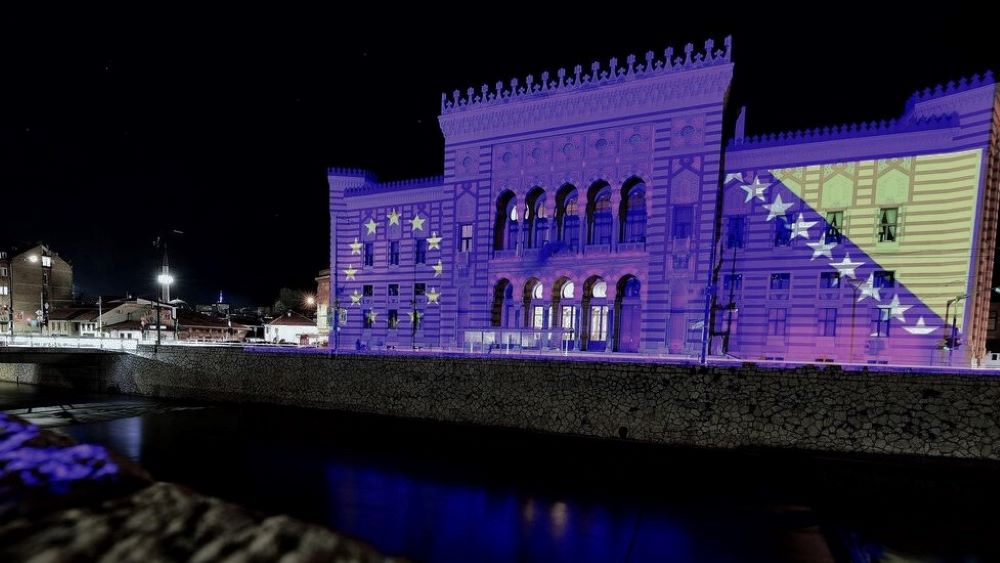Either explicitly or implicitly, the EU marked the countries of the Western Balkans as a region lacking “peace, democracy and prosperity” in its official communications.

Dr. Jasmin Hasic
The permeation of different cultures, strengthening of economic integration, opening of new markets and investment opportunities through the process that began in Thessaloniki 20 years ago, are all reasons for Bosnia and Herzegovina’s great interest in inclusion. The new perspective of the Union’s expansion has opened up possibilities of integration processes, the fight against widespread corruption in the Western Balkans, and the strengthening of governance and human rights.
Adoption of the Thessaloniki agenda specified the “strengthening of the access dimension of SAP”, as well as access to twinning programs, TAIEX, the Office for Information Exchange and provision of technical assistance.
The agenda opened a consistent political dialogue and enrichment of the dimension of accession to the SAA, as well as cooperation between the EU and countries from the Western Balkans region that are not based primarily on the EU legal acquis.
The meeting of the European Council and the Balkan summit in Thessaloniki meant a shift in the establishment of the basic positions and principles of the future expansion of EU borders, but this did not ensure a consensus for the adoption of a necessary and consistent strategy for the complete integration of the Balkan countries within the Union. But the EU perspective took on somewhat different meanings.
The terms attributed to the region and the term “Western Balkans” in official EU communications reflected the undemocratic and ineffective governance system in the region, slowness of reforms and uncooperative or disloyal opposition. They saw it as a region without leadership that would ensure the necessary political will to “implement political and economic reforms.”
Either explicitly or implicitly, in its official communications the EU marked the countries of the Western Balkans as a region lacking “peace, democracy and prosperity”, an area of “outdated economy”, where “stability, security, democracy and basic freedoms” are making slow progress; a a politicized entity instead of a market economy, disconnected from other areas of the European Union, digitally, legally, physically and politically.
After a series of unimplemented reforms in the countries of the region, and numerous negative characterizations in official EU documents based on poor results in reform processes, there was a need to renew the unambiguous European perspective from Thessaloniki, in order to give the region and the enlargement process new momentum. The 2018 summit in Sofia served this purpose. However, the issue of enlargement was not the main topic, the adopted Declaration did not confirm that the year 2025 will be crucial for the process of European integration of the entire region, as stated in the EU Enlargement Strategy adopted at the beginning of 2018.
The declaration, which confirmed the EU’s commitment to support the Western Balkans in its integration efforts, was adopted at the EU-Western Balkans summit in Zagreb on May 6, 2020.
The Zagreb Declaration reaffirmed the Union’s commitment to the Western Balkans region and renewed its European Union perspective. The new extension methodology should aim to make the entire process more credible and efficient. Through the significant financial and technical assistance that the EU has pledged to provide, it will also strengthen the Union’s commitment to the entire enlargement process and the resolution of accumulated obstacles.
As emphasized during the summit in Thessaloniki 20 years ago, and in numerous declarations later, the EU institutions are doing everything they can to make the region succeed, “but membership must be earned”, the speed of EU integration “depends on you”, as well as the responsibility for all failures and omissions.
The example of BiH signing the Association Agreement, is the most recent example of the importance of political will.
Given the current setting of unfavourable political movements, it’s difficult to estimate whether this will have enough momentum to achieve candidate status and fulfill the 14 priorities that the EU has set before BiH.
Dr. Jasmin Hasic, Executive Director of the Humanity in Action Foundation BiH



Leave A Comment